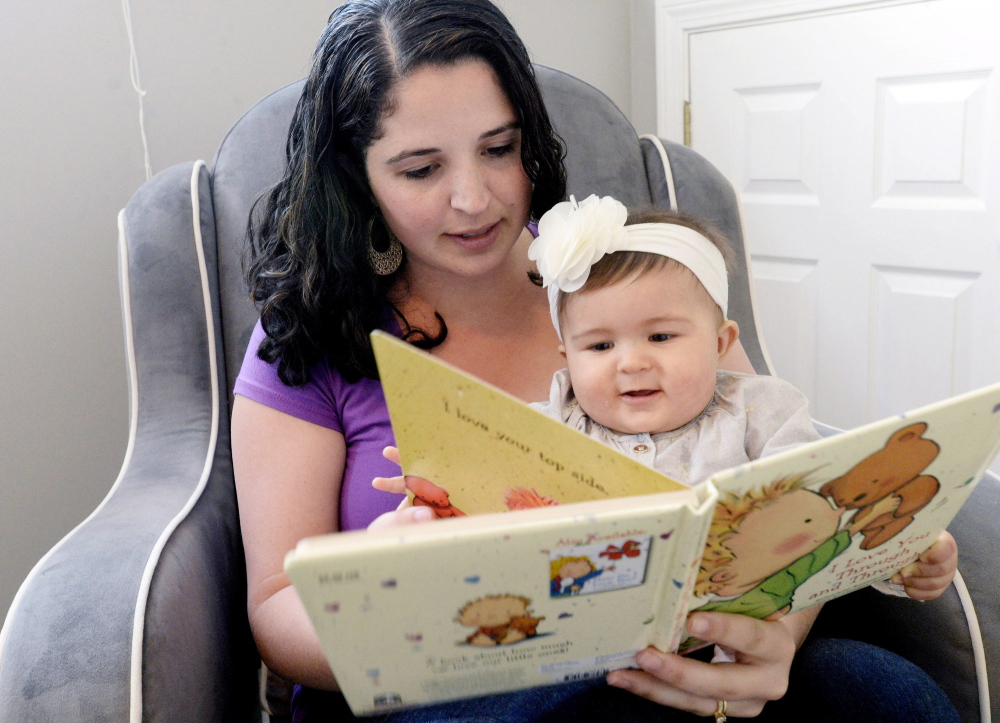To help families pay for higher education, the Harold Alfond Foundation has decided to award $500 grants automatically to all babies born as Maine residents since the start of last year.
Since 2009, the foundation named for the late Maine businessman and philanthropist has given $500 grants to children whose parents have filled out paperwork to set up NextGen 529 college savings accounts. Parents have had one year to claim the grants. About 40 percent have taken advantage of the program.
In announcing the change to automatic grants Thursday, Greg Powell, president of the foundation, said, “To meet the future workforce needs of Maine’s economy, we need every baby to have the $500 Alfond Grant, not just the opportunity to receive it.
“Forty percent is good, but we wanted to be at 100 percent and we just weren’t getting there fast enough,” Powell said. “We are mindful of the essential role of higher education. Higher education is no longer a luxury.”
The foundation has awarded nearly 23,000 grants, worth almost $11.5 million, since 2009. It expects the new program to cost about $6 million a year, to cover grants for the approximately 12,000 babies born to Maine parents each year. The automatic grants are retroactive to babies born since Jan. 1, 2013.
No other state has a similar program, said Margaret Clancy, who has researched college savings initiatives as policy director for the Center for Social Development at Washington University in St. Louis.
The city of San Francisco and the state of Nevada have programs to provide every kindergarten student with $50 in a college savings account. San Francisco’s program was launched in 2012 and Nevada started its program last month.
The Harold Alfond Foundation’s announcement was good news for Hannah Richards, a first-time mother from Windham, who brought her 7-month-old daughter, Mia, to Thursday’s news conference announcing the grants.
“She’s an Alfond baby,” Richards said, smiling at her daughter. “It’s a big help.”
Gov. Paul LePage praised the program Thursday, after joking that if it had been offered when he was a child – he was one of 18 children – his family “would have broken the bank.”
“It’s amazing that Maine has been so fortunate to have someone like Harold,” LePage said. “The legacy he left is just stunning. And taking this step, it’s really something else.
“Your partnership, your commitment, is one that will truly make a difference for the future of our children,” he said.
The grant money is deposited in 529 college savings accounts, which are similar to 401(k) savings accounts for retirement and have similar tax benefits. The investments grow tax-deferred, and distributions to college are not subject to federal tax.
The Finance Authority of Maine will create a 529 account for each child born on or after Jan. 1, 2013, who is reported by the Maine Bureau of Vital Records as a Maine resident. A woman who visits the state and gives birth here would not qualify. A Maine resident who gave birth outside the state would qualify.
For parents who have already created a NextGen account, the grant will be deposited into that account. Otherwise, the money will go into a scholarship account owned by the Alfond Scholarship Fund in that child’s name. It must be used by the time the child turns 28 or it reverts back to the fund.
Families will receive quarterly reports with information about their accounts and their children’s education, and additional contribution forms.
The money may be used to pay for qualified expenses at accredited post-secondary schools, including two-year colleges, certificate programs, trade schools and even graduate schools.
Organizers said that $500 invested in the program today would grow to almost $2,000 in 18 years, assuming an average market performance of 8 percent growth. Children who have college savings programs are six times as likely to attend college as those who don’t, according to researchers at Washington University.
Powell also noted that several businesses, such as Unum and The Jackson Laboratory, have partnered with the foundation to offer one-time contributions to their employees for college savings funds.
The foundation made the change in part because it was spending too much time trying to get new parents to sign up for NextGen accounts, said Elizabeth Vanderweide, who manages the Alfond program for the Finance Authority of Maine.
“We didn’t appreciate the complexity and asked ourselves, ‘Why are we making this a challenge for them? How can we make this simple?’ ” she said.
Noel K. Gallagher can be contacted at 791-6387 or at:
Send questions/comments to the editors.



